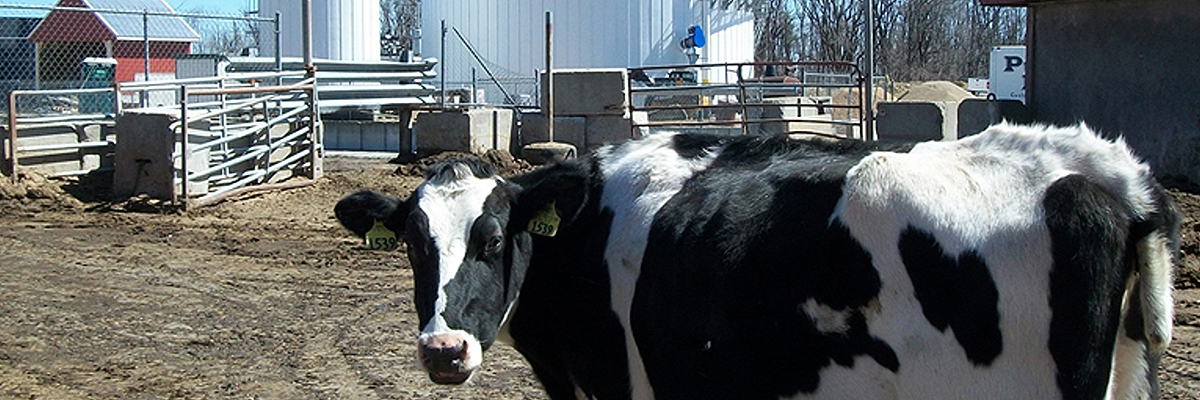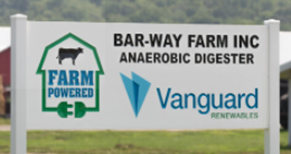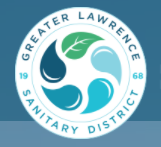
The Challenge: Turn Unwanted Organic Materials into Clean Renewable Energy
Faced with an impending statewide ban on the disposal of significant quantities of food waste and limited capacity at existing organics processing facilities, MassCEC launched Commonwealth Organics-to-Energy to both address this shortage and take advantage of opportunities to create clean, renewable energy. The program helped both commercial and public-sector developers advance projects to the stage where they could obtain the balance of necessary construction financing.
About Commonwealth Organics-to-Energy
The Commonwealth Organics-to-Energy program provided grants for feasibility studies and construction for projects that employed anaerobic digestion or other technologies using organic feedstocks to generate electricity and/or usable heat. Up to $500,000 in grant funding was available for implementation projects and up to $50,000 for feasibility studies. For particularly complex public-sector projects, up to $100,000 was also available for technical services. The program focused primarily on commercially available technology.
Program Accomplishments
-
MassCEC’s support contributed to the construction or upgrade of 12 facilities using anaerobic digestion and two based on composting with heat recovery. These facilities accounted for an approximately 500,000-tons-per-year increase in statewide organics processing capacity and represent about 10 MW of high-availability electricity generation capacity.
-
The program helped establish the business model of combining food waste with animal manure to develop commercially viable anaerobic digestion projects on modestly-sized farms. Such projects help sustain family farms and return valuable nutrients to the food cycle. Project developers who gained experience in Massachusetts are expanding in other states.
- The program developed and analyzed a database on Massachusetts' wastewater solids (sludge) quantities and management practices.
2012 - 2020
Implementation (Design & Construction)
Pilot Projects
Feasibility Studies
Technical services related to public infrastructure project development
Example Awardees

Deerfield AD1, LLC
Awarded $400,00 for design and construction
Deerfield AD1, LLC constructed an anaerobic digester at Bar-Way Farm in Deerfield, MA. The 660,000-gallon digester breaks down a mixture of manure from Bar-Way farm’s 250-300 milking cows and slurried organic waste from food processing plants. Biogas from the digester feeds a 1-MW combined heat-and-power system, which produces over 7 million kilowatt-hours of electricity per year, plus heat and hot water. Digestate (nutrient-rich liquid from the system) is used to fertilize crops on adjacent fields. https://vanguardrenewables.com/portfolio-items/bar-way-farm/

Greater Lawrence Sanitary District
Awarded $60,000 for technical services and $400,000 for design and construction
GLSD added a fourth digester to its wastewater treatment plant, along with the ability to accept slurried food waste. The biogas produced by the digesters now feeds a 3.1 MW combined heat-and-power system that produces more than enough electricity to run the entire plant, as well as some of the District’s pumping needs. The plant can maintain operations during an electrical grid outage (by “islanding”), preventing the discharge of untreated sewage to the Merrimack River. https://glsd.org/project-net-zero/
S&S Freetown, LLC
Awarded $400,000 for construction
•Stop & Shop’s regional distribution center in Freetown, MA not only sends fresh food out to supermarkets – it also takes back products that could not be sold or donated, like bruised produce or expired dairy products. These materials are removed from any packaging, mashed to a pulp, and fed into an anerobic digester. Biogas from the digester fuels a 1.1 MW generator, which produces about 40% of this 1-million square-foot facility’s needs. Stop & Shop: 5 Years of Green Energy
Program Outputs and Resources
Massachusetts Sewage Sludge Survey
In 2019, MassCEC contracted with the North East Biosolids and Residuals Association to survey Massachusetts water resource recovery facilities on their solids (sludge) generation quantities and management practices.
Small-Scale Organics-to-Energy Systems Vendor Directory
MassCEC engaged Eastern Research Group to compile the following directory of small organics-to-energy systems that were commercially available in the United States as of 2013:
Feasibility Studies and Reports on Pilot Operations
Past Program Details
Notable Program Features
- Construction projects were required to meet a cost-effectiveness ratio comparing grant dollars to energy (electricity and/or heat) output.
- Key selection criteria included reliability of feedstock supply, community compatibility, and financial viability.
- The addition of a combined heat-and-power system to an existing anaerobic digester was an eligible project type.
- Public-sector applicants were eligible for additional, flexible funding in recognition of greater project complexity.
- Program design was developed in cooperation with the MA Departments of Environmental Protection and Agricultural Resources.
For typical Program details, please refer to the Organics-to-Energy Round 6 Solicitation documents